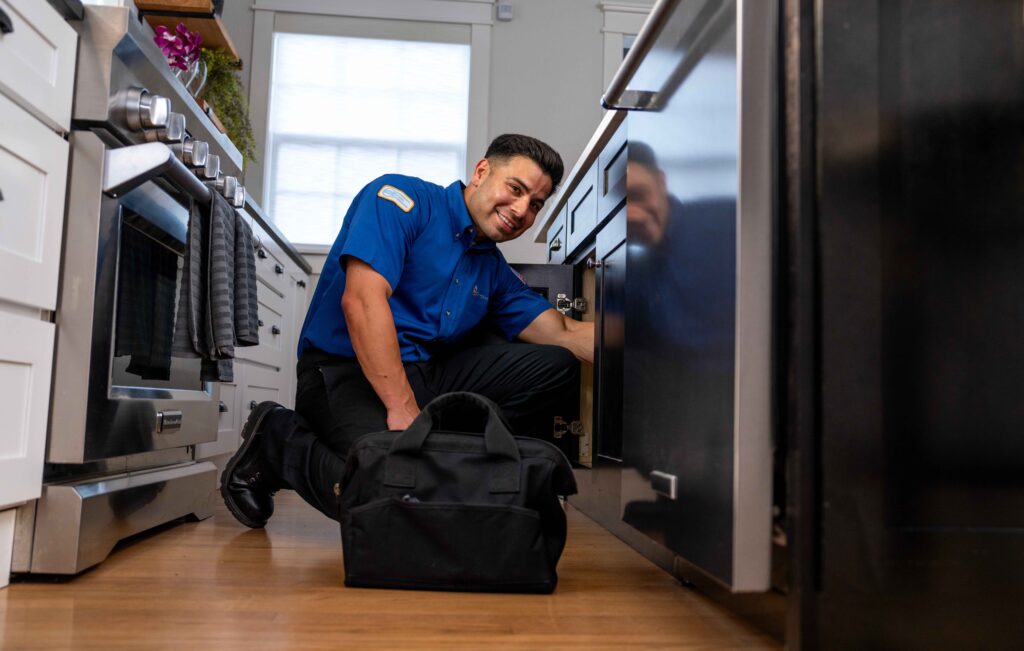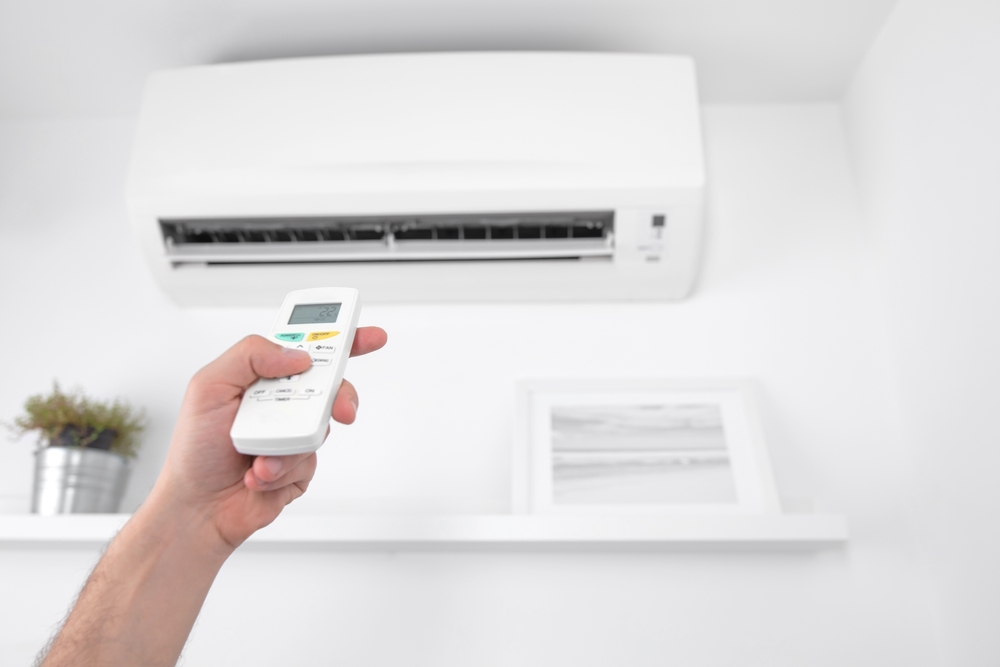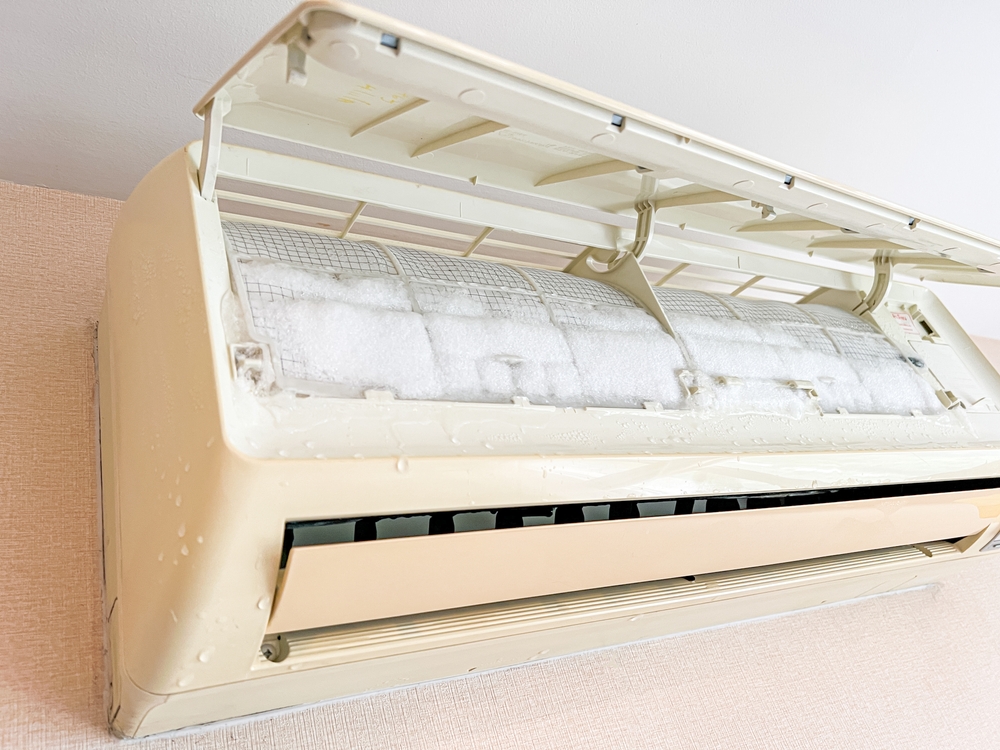Blog
Home Plumbing Maintenance Checklist: Essential Daily, Weekly, and Seasonal Tasks
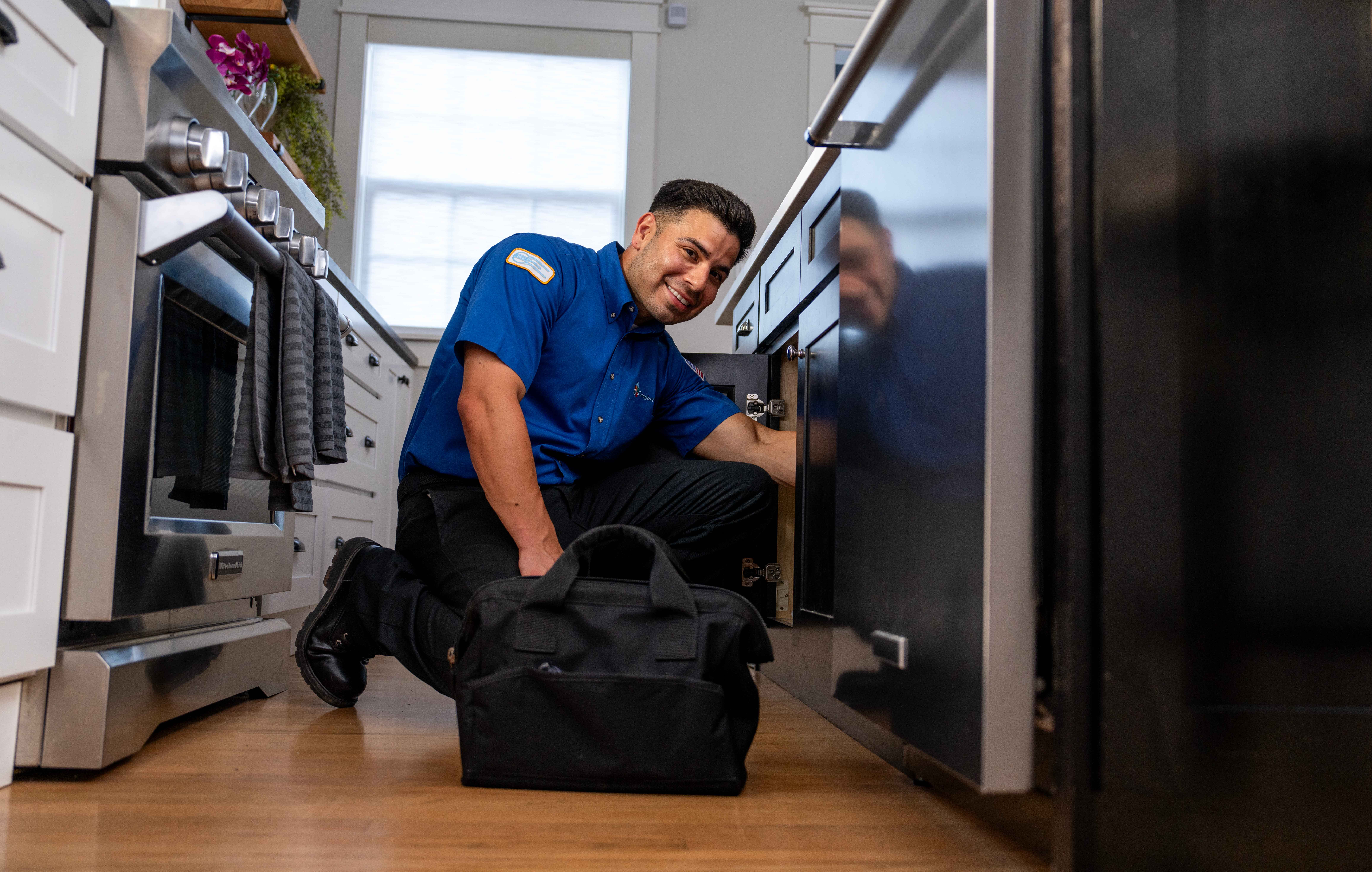
Listen closely for odd or unexpected noises happening in your drains, sink, or shower. Since you cannot see plumbing problems until they occur, it’s important to use your other senses. This includes routinely checking for odd odors, noises, and wet spots.
Although we will provide you with easy maintenance steps you can use at home, it never hurts to have an expert take a look. You can and should monitor the health of your toilets, showers, and drains year-round. Follow this guide for accessible prevention tools you can start implementing today:
The Importance of Regular Plumbing Maintenance
The last thing you want to deal with is a plumbing mishap. Why not nip problems in the bud before they become major issues? Whether it’s gaining a clear picture of the current condition of your pipes or discovering previously undetected issues, regular plumbing maintenance is imperative.
Here are a few reasons why regular plumbing maintenance is essential:
- Expands Pipe Lifespan
- Encourages Consistently Clean Water
- Prevents Leaks, Corrosion, and Rot
- Can Catch Issues Before They Develop
- Peace of Mind
Daily Tasks
It pays to perform impactful maintenance on your home plumbing. These small, sometimes tedious tasks lessen the need for high-cost repairs.
Although it may feel daunting, these preventative steps are relatively simple. All it takes is some background knowledge (as well as nearby professional help) to get the job done.
Soon enough, the work you put into your kitchen, bathroom, or external plumbing will show. Try these simple yet effective maintenance tasks and watch your home plumbing live longer:
Kitchen Daily Tasks
Start with the main fixture in the room—the sink. Here, there are a few different components to check. First, check to see if water is expelled quickly from the drain. If not, it could be a loose P-trap or strainer issue. The P-trap is in charge of trapping sewer gas so that it cannot head upward and through the drain.
Check and see if the strainer has been corroded or rusted over. This could be the main culprit behind slow-moving or noisy drainage. You may be able to clean it, but in most cases, if it’s causing this much of a disruption, the strainer needs to be replaced.
Then, move over to the disposal. Other than foul odors or loud noises, a disposal can leak from below. Look closely for loose connections or gasket issues.
Bathroom Daily Tasks
Bathrooms can be a little more complicated, as there are two central outlets: the sink and the shower. Because shower, sink, and tub drains are consistently hit with hair and soap scum, they are more likely to clog fast.
If you notice water isn’t draining, you probably have a clog. An easy home remedy for this is boiling water. Either alone or in combination with a homemade clog removal solution, pour the water down the drain.
The same goes for faucets. Leaks, unfortunately, can develop beneath the surface. A slow-moving or spotty faucet is most likely caused by a calcium buildup in the aerator.
Around the House
Pipe issues can affect your entire home, as many plumbing outlets are used to fuel everyday routines such as appliances and water heaters. A water heater can easily produce a leak through a faulty relief valve or bad drainage.
To remediate water heater issues, simply try cleaning out the tank or seek a professional if you find that the leak is coming from inside the unit.
Other times, it’s a water pressure issue. You can easily avoid stress-inducing water leaks from your water heater by using a pressure gauge. If you find that the pressure is too high (without you adjusting it), you’ll need to either repair or replace the pressure regulator.

Weekly Maintenance
In the same way you schedule your grocery runs, carve out time to perform weekly maintenance. This could be as simple as getting out the pressure gauge.
If you choose to go with pressure gauging, make sure all appliances are turned off before you begin. Next, choose a faucet that you think will give the most accurate results. You want your home water pressure to land anywhere between 40 and 60 psi.
Pipes are bound to have taken on damage if your home water pressure has been above average for an extended period. A below-level pressure means that there’s probably a leak somewhere.
Lastly, you want to make sure that hot water runs hot and cold water runs cold. Seems simple enough, but it could be the difference between complex repair and small fixes.
Monthly Tasks
Monthly tasks are far less specific than weekly or daily ones. It’s mostly about using your eyes to spot any weird or unusual damage symptoms, such as corrosion or leaks.
Check your water heater’s pressure-relieve valves every month. Simply lift the lever, as this allows you to see if the discharge valve is releasing water and vapor efficiently. If they’re not exiting from the discharge tube, there’s a problem.
If your home uses a sump pump, check it. You need to be able to guarantee that it will effectively remove water from rain, a leak, or a flood.
Some additional monthly tasks to implement:
- Clear Clogged Drains
- Check Outdoor Plumbing
- Inspect Septic System
- Flush Water Heater
- Examine Toilets
Seasonal Maintenance
Because seasonal weather conditions can be harder on pipes than any clog or internal leak, seasonal maintenance is a no-brainer. Homeowners who live in colder climates know just how effective pre-planning for snow, rain, or heavy winds can be.
No matter if it’s heat, torrential rain, or frost, you can put in place seasonal maintenance procedures that will help protect your pipes year-round.
Consider a season-specific approach to plumbing maintenance:
Fall Maintenance
Fall is a perfect time to receive professional pipe inspection. If you choose to go about preventative maintenance alone, know what you need to look out for. Due to weather changes, Fall produces a unique set of pipe challenges: sudden water heater issues, clogs due to leaves or debris, and sump pump malfunction. Focus on gutter maintenance first, as gutters are the first to accumulate leaves.
Sump pumps take on a stark dip in temperature, causing them to freeze or slow. Make sure to clean and thoroughly inspect yours before cold weather settles in.
Winter Maintenance
In snow-heavy areas, seasonal maintenance is commonplace. Residents know that to stay warm, they need to put multiple prevention tools into place. Water inside pipes is 10 times more likely to freeze during the winter season, so stay prepared.
Push back against frost-induced pipe damage with these impactful methods:
- Head to frost-suspectible areas: basements, crawl spaces. Insulate all pipes in these areas so that they can properly move water in cold temperatures.
- Check and see if areas near water lines are producing cold or chilly breezes. Drafts in these areas (cabinets with pipes, bathroom/kitchen) could make it easier for pipes to freeze in the cold.
- An oldie but a goodie — keep the tap running.
Spring Maintenance
Drains are the first to take on spring weather. Because winter frost is just starting to melt, pipes could still suffer. Focus on drain remediation before spring pollen, debris, and foliage begin to pop up.
If you do notice a drain problem, do not hesitate to reach out to a locally operated restoration company. Indiana and Michigan residents may find Home Comfort Experts to be the fast-acting solution to spring pipe damage they need.
Spring-specific plumbing prevention may look like this:
- Checking for Slow Leaks
- Check for Leaks: Puddles, Wet Spots
- Check Water-Fueled Appliances
- Inspect your Toilet + Tank
Summer Maintenance
Summer produces its own set of plumbing challenges. Shift your focus to your home’s septic system during the summer months, as it’s uniquely prone to clogs and breakdown. It should be easier for a plumber to examine the system in heat than in the cold.
Your outdoor sprinkler system needs to be in fully working condition ahead of time. Do a full inspection of the system to see if there’s anything an expert can remediate.
Some easy summer-proof maintenance tools:
- Inspect Your Septic System Regularly
- Pump Your Septic System When Needed
- Schedule Regular Sewer Main Snaking
- Consider Removing Trees with Root Problems
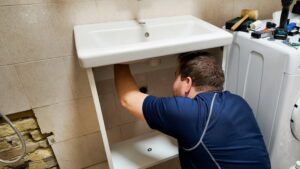
Annual Tasks
Like most home outlets, plumbing requires one annual maintenance service. Of course, consider the amount of damage your pipes have taken on. In some cases, you may need to see an expert more than once a year.
Everything needs to be examined at once: water heaters, sump pumps, drains, faucets, and backflow preventers. Not only does everything need to be up to code, but each piece needs to be effective enough to curb any circumstance.
Common Plumbing Issues and Prevention
We see a lot of different plumbing issues at Home Comfort Experts, and because of that, we know what signs to look for. Watch out for these commonly serviced plumbing issues before they happen:
- Pipe Corrosion
- Leaks
- Clogs and Blockages
- Low Water Pressure
- Running Toilets / Faucets
When You're Unsure of the Problem or the Task Exceeds Your Expertise
It’s not that we don’t think you can handle your home plumbing; it’s just that some issues require expert-level knowledge to remediate. Don’t mess around with DIY restoration tools that may or may not work when a local plumber could easily fix the issue.
Simply leave it to an expert to locate, remediate, and remove the problem before a replacement is needed. Home Comfort Experts is happy to be this guiding force for residents in need of plumbing assistance.
Call Home Comfort Experts for Any Plumbing Issues in Indiana & Michigan
Our goal is to provide you with a worthwhile service, not just a quick fix. After your initial service, feel free to reach out to us with any questions or concerns.
Plumbing repairs are not a one-and-done thing; you need frequent professional maintenance to keep pipes in order. Indiana and Michigan homeowners don’t need to suffer from pipe corrosion, leaks, or aging alone. Simply call us, and our team will arrive ready to work.
Home Plumbing Maintenance FAQ
1) What Are the Most Common Signs of Plumbing Problems?
Common signs include odd noises, smells, and wet spots. Anything that appears to be out of the blue could be a sign that pipes are experiencing a problem.
2) Can Regular Plumbing Maintenance Prevent Major Repairs?
In short, yes. Regular plumbing maintenance can prevent costly repairs by addressing issues before they become serious.
3) Is It Necessary to Hire a Professional for Plumbing Maintenance?
Not necessarily. However, most homeowners do not have the tools or expertise needed to repair leaking, frozen, or broken pipes.
4) What Plumbing Maintenance Tasks Can I Do Myself?
You can implement easy preventative steps like visual inspections, test runs, and simple part fastening without professional help.




